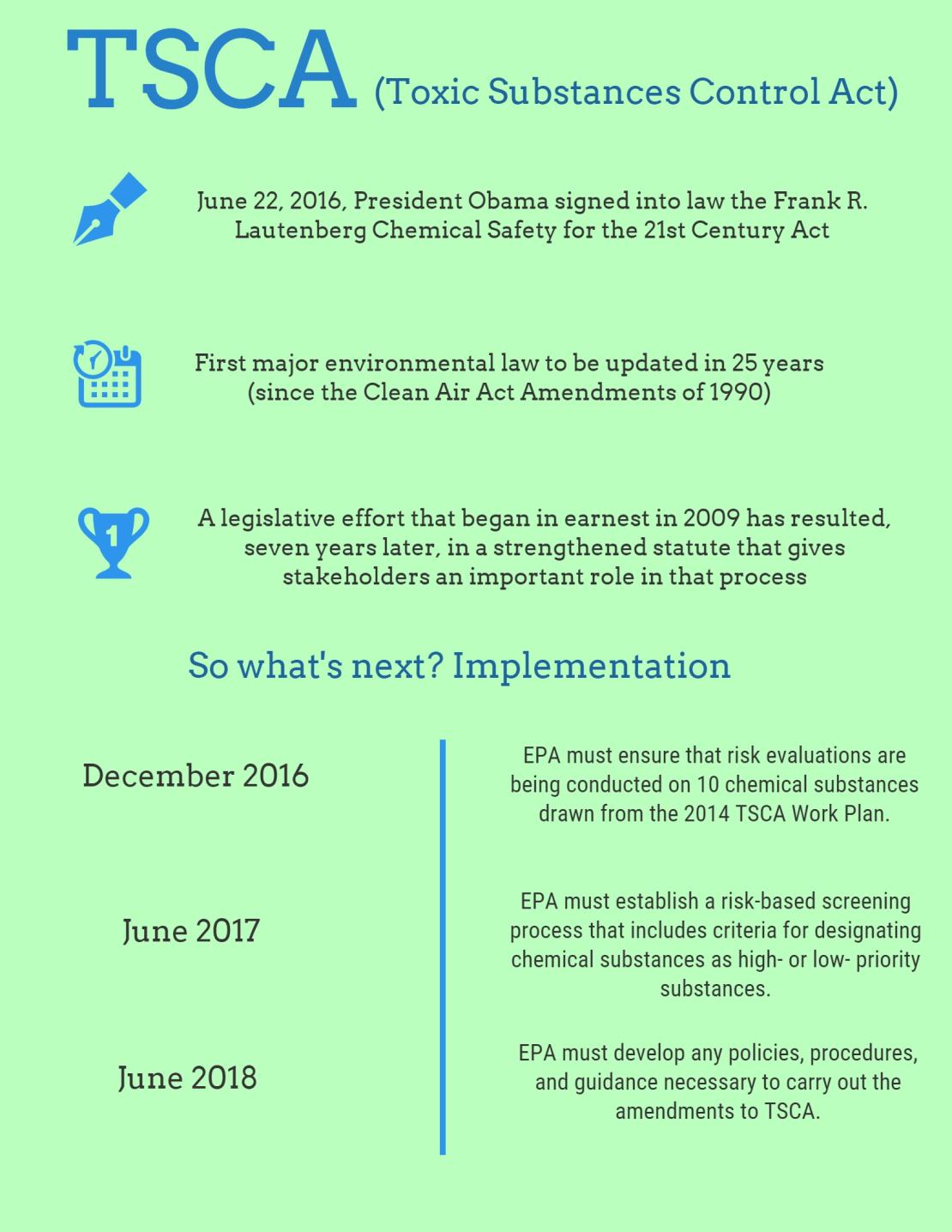


Those include PCBs, asbestos, radon, lead, mercury, and formaldehyde. Six chemical substances receive special attention under TSCA.

The latter are not required by law, but are submitted by industry and public interest groups for a variety of reason. EPA screens all TSCA b§8(e) submissions as well as voluntary "For Your Information" (FYI) submissions. Require, under Section 8(e), that any person who manufactures (including imports), processes, or distributes in commerce a chemical substance or mixture and who obtains information which reasonably supports the conclusion that such substance or mixture presents a substantial risk of injury to health or the environment to immediately inform EPA, except where EPA has been adequately informed of such information. Require, under Section 8, reporting and record-keeping by persons who manufacture, import, process, and/or distribute chemical substances in commerce. Require those importing or exporting chemicals to comply with certification reporting and/or other requirements (Sections 12(b) and 13). As new chemicals are commercially manufactured or imported, they are placed on the list (Section 8) Maintain the TSCA Inventory which contains more than 83,000 chemicals. Issue Significant New Use Rules (SNURs), under Section 5, when it identifies a "significant new use" that could result in exposures to, or releases of, a substance of concern. Require testing of chemicals by manufacturers, importers, and processors where risks or exposures of concern are found (Section 4) Require pre-manufacture notification for "new chemical substances" before manufacture (Section 5) Certain substances are generally excluded from TSCA, including, among others, food, drugs, cosmetics and pesticides. §2601 et seq.) provides EPA with authority to require reporting, recordkeeping and testing requirements, and restrictions relating to chemical substances and/or mixtures. The Toxic Substances Control Act of 1976 (15 U.S.C.


 0 kommentar(er)
0 kommentar(er)
